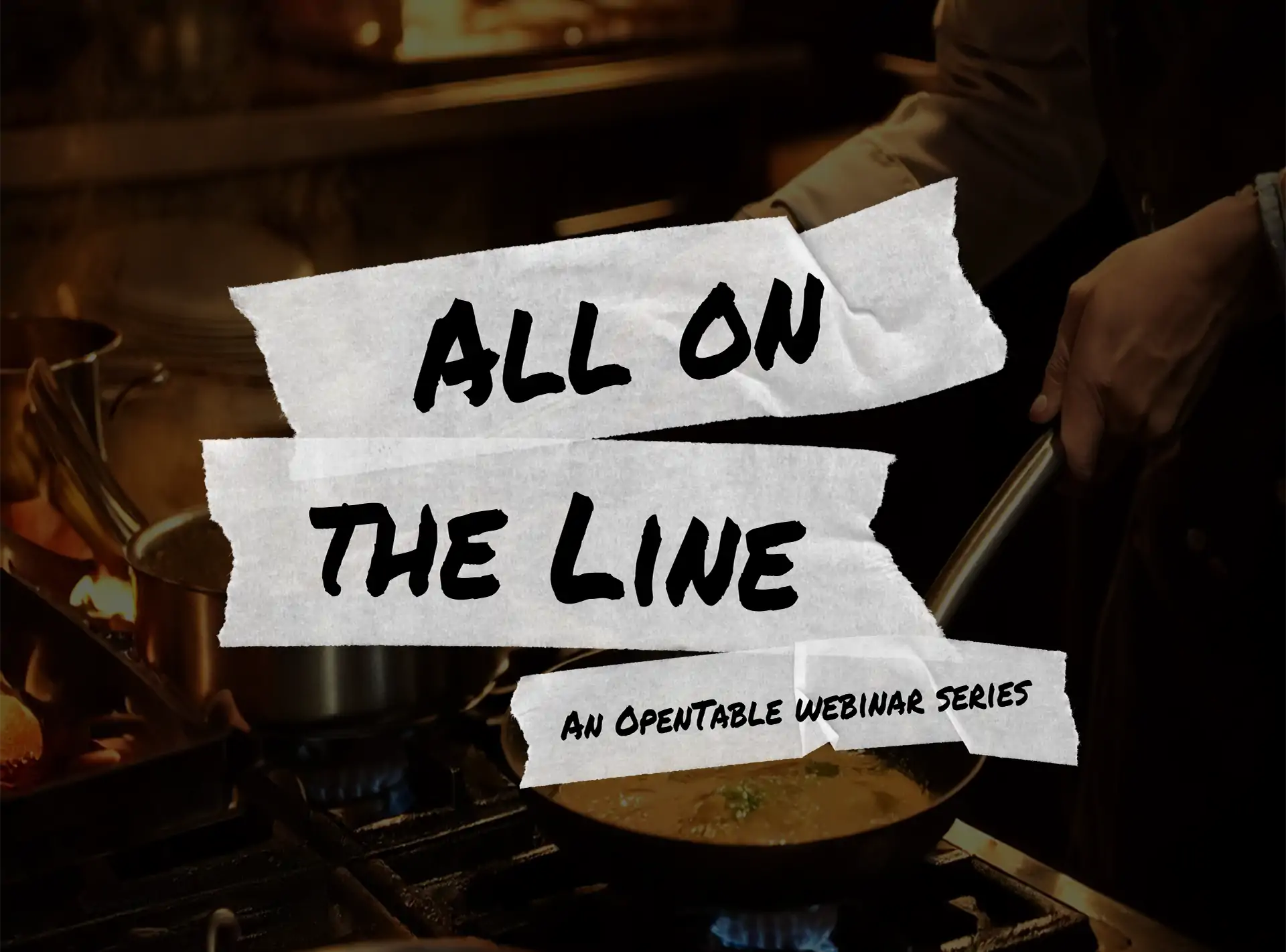Running a restaurant these days can feel like riding a roller coaster. From increased food costs to economic instability, there’s a lot to navigate. We recently sat down with experts Kevin Boehm, co-founder of Boka Restaurant Group, Elizabeth DePalmer, managing partner at Atomic Workshop, and Tavel Bristol-Joseph, co-owner of Emmer & Rye Hospitality, to learn how they keep a level head when the pressure is high. Read on for the top takeaways.
Don’t leave your team in the dark
During tough stretches, silence just makes people more uneasy. “People feel energy,” said Boehm. “If you don’t talk about it, they’ll fill in the blanks. So I think you have to fill in the blanks for them.”
DePalmer echoed the importance of communicating with your team, stressing the need for it to be a two-way street. “We’re in the business of humans. You can tell a lot by the numbers…but you need to know how people are feeling,” she said.
Consider this: Prioritize your pre and post shift huddles to discuss things beyond just nitty-gritty work stuff. Be honest about what’s happening, ask your team how they’re really doing, and point to a shared goal.
Focus on the why, not the what
New openings are uncertain. Pivots are uncertain. But having a clear understanding of your “why”? That’s your steady ground.
“When you’re faced with tough times…bringing people back to their “why” instead of focusing on the “what” is so important,” said Bristol-Joseph.
Boehm echoed this sentiment. Regarding openings, he said, “Don’t let your ego of not having an absolute full dining room on night two cause you to make yourself look bad.” Both observations underscore the importance of staying true to your core purpose rather than getting sidetracked by immediate results or external pressures.
Consider this: Write down your restaurant’s why. Share it with your team. Let it guide decisions—from hiring to marketing to menu design.
Find the balance between culture and efficiency
When business feels uncertain, most people zero in on cost-cutting. That matters, no doubt. But don’t forget about your culture—that matters just as much.
“I look at cash flow and culture…because if that’s off, that’s going to create a lot of uncertainty—or more uncertainty—in an uncertain time,” said DePalmer.
Yes, track your P&L. But pay close attention to staff turnover and morale, too. Are your people actually happy to come to work? A strong, healthy work culture can be a stabilizing force.
Consider this: Look at your staff retention rates with the same intensity you look at your food and labor costs. If people are leaving or burning out, dig into the why before your culture goes sideways.
Tighten up on waste
Every expert agreed: When you need to tighten up, start with what you can control. They shared several different places to start when looking for places to trim.
“The easiest one to do is beverage,” said Boehm. “Servers overpour… You never get that half glass out.”
Bristol-Joseph zeroed in on linens. “I’m going [with] linen…They pick up and drop off. No one knows when they showed up, what they took.”
“Labor for sure,” added DePalmer. “Make sure people are working the shifts they’re supposed to work.”
Consider this: Pick one line item this week—beverage, labor, linen—and do a mini audit. Ask yourself: Is it being tracked? Is it optimized? Is there any hidden waste?
Double down on the guest experience
It’s tempting to be conservative or pull back on service when business is slow. Bristol-Joseph flipped that notion on its head though: “This is the time I want [staff] to step out and show the best hospitality [they] can.”
Boehm agreed: “You need to lean into hospitality—and at the same time do more with less.”
When guests feel taken care of, they talk about it, and more importantly they come back again and again, especially during more steady times.
Consider this: Amp up hospitality, even when it feels the hardest to do so. Empower staff to create memorable moments for both your regulars and new guests.
Separate emotion from business
It’s easy to get caught up in the emotional rollercoaster of uncertainty, but successfully navigating the ups and downs of running a restaurant often requires a clear distinction between feelings and facts.
“I look at the word “uncertainty” and it’s so emotional—it’s a feeling, not reality,” said Bristol-Joseph. “We have to make emotional and business decisions separately, not together.” This means making calls based on performance, not personal sentiment.
DePalmer underscored the need for a comprehensive, objective assessment of all factors when making critical business decisions. “There are a lot of intangibles. The economy, the season…what’s happening in the world…It is just part of it, and you have to look at all of it to make your decision,” she said.
Consider this: Be honest about performance. Set a clear, data-driven threshold for success. And if you need to reconceptualize, do it with dignity—and support your team through it.
Uncertainty? That’s your cue for creativity
Bristol-Joseph put it simply, “I live in uncertainty. I get comfortable with uncertainty because it keeps me grounded…it keeps me motivated to continue to push.”
He urged restaurant owners and operators to see pressure as potential. That feeling of being on the brink? It could be a signal that you’re about to hit a breakthrough, not a breakdown. He added, “I think we anticipate a struggle and it prevents us from going through it.”
Consider this: Don’t just play defense. Use slow nights to proactively rethink systems, menus, or service flows. Start small and ask yourself, “what’s one inefficiency I can solve this week?”
Find focus amidst chaos
“Your mind’s a very complicated tool, and you have to manage it all the time,” said Kevin. “Whenever you can quiet your brain so you can concentrate on what’s important, do it.”
“You do have choices on how you show up,” said Elizabeth. “Find the positive. Find the opportunity.”
That’s what this time calls for: clarity, empathy, and the willingness to try again tomorrow.




